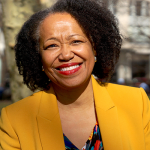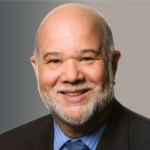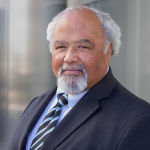
Moving the Needle on the Social Determinants of Health
What are specific actions that can be taken at the local level that will address social determinants of public health in terms of education, criminal justice, family support, economic equality, and other areas? How can public health officials actively support those policies and initiatives?


Register
Course Information
- Audience: Public Health Professionals
- Format: Webinar
- Date/Time: Tuesday, November 9th, 2021 4:30 PM – 5:30 PM EST
- Price: Free
- Length: 1 hour
- Credential(s) eligible for contact hours: Sponsored by New England Public Health Training Center (NEPHTC), a designated provider of continuing education contact hours (CECH) in health education by the National Commission for Health Education Credentialing, Inc. This program is designated for Certified Health Education Specialists (CHES) and/or Master Certified Health Education Specialists (MCHES) to receive up to 1 total Category I continuing education contact hours. Maximum advanced-level continuing education contact hours are 1. Provider ID: 1131137 Event ID: SS1131137_MNSDH.If you are not seeking a CHES/MCHES contact hours, if you complete the post-test and evaluation, you will receive a Certificate of Completion. The Certificate will include the length of the course.
- Competencies: Data Analytics and Assessment Skills
- Learning Level: Awareness
- Companion Trainings: None
- Supplemental materials:None
- Pre-requisites: None
About this Recording
Coincident with recent reports published by the Rockefeller-Boston University 3-D Commission and by the Robert Wood Johnson Foundation, join global experts for a discussion on leading-edge science on social determinants of health—and where we are headed from here. Cohosted with the Robert Wood Johnson Foundation.
What you'll learn
At the end of the recording, participants will be able to:
- Identify 3 themes shared by two recent reports (Rockefeller-Boston University 3-D Commission and Robert Woods Johnson Foundation) on using data to improve public health through understanding social determinants.
- List 3 key actions necessary to advance the recommendations of both reports areas in terms of educating the public health workforce and the general public
- Describe the types of data that can lead to action
- Discuss how COVID-19 pandemic has highlighted problems in health data infrastructure
Subject Matter Experts

Gail Christopher
Executive Director, National Collaborative
@DRGCCHRISTOPHER
for Health
Equity
Laura Magaña
@LAURAMAGVALLPresident and CEO Association of Schools
and Programs of
Public Health
Alonzo Plough
@ALONZOPLOUGHVice President, Research-Evaluation-Learning and Chief Science Officer, Robert Wood Johnson Foundation

Rhitu Chatterjee
@RHITUCMODERATOR
Health Correspondent,
NPR
Eric Goosby
@DRERICGOOSBYProfessor of Medicine and Director of Global Health Delivery and Diplomacy, Institute for Global Health Sciences, UC San Francisco
Dr. Gail Christopher is an award-winning social change agent with expertise in the social determinants of health and well-being and in related public policies. She is known for her pioneering work to infuse holistic health and diversity concepts into public sector programs and policy discourse. In her role as the Senior Advisor and Vice President at the W.K. Kellogg Foundation (WKKF), she was the driving force behind the America Healing initiative and the Truth, Racial Healing and Transformation effort. Dr. Christopher also served as Kellogg’s Vice President for Program. In 2015 she received the Terrance Keenan Award from Grantmakers in Health. She chairs the Board of the Trust for America’s Health. In 2019, Dr. Christopher became the Executive Director of the National Collaborative for Health Equity (NCHE).
Dr. Laura Magaña joined the Association of Schools and Programs of Public Health (ASPPH) as President and CEO in August 2017. Under Dr. Magaña’s leadership, ASPPH has continued to advance its mission to strengthen the capacity of members by advancing leadership, excellence, and collaboration for academic public health. During her tenure, ASPPH has significantly grown its global engagement, established an academy for teaching excellence, launched the academic public health leadership institute and enhanced the voice of academic public health through advocacy efforts. Prior to joining ASPPH, Dr. Magaña dedicated more than 35 years to successfully leading the transformation and advancements of public and private universities in Mexico; educational organizations in the USA; United Nations programs; and NGO’s in Central America and Europe. She was most recently the dean of the School of Public Health in Mexico at the ASPPH-member National Institute of Public Health (INSP). Her diverse portfolio features academic publications, educational technological developments many of which relate to learning environments, the use of technology in education, and public health education. She has also been a faculty member and lecturer in diverse universities around the world.
Alonzo Plough joined the Robert Wood Johnson Foundation as chief science officer and vice president, Research-Evaluation-Learning in January 2014. He is responsible for aligning all of the Foundation’s work with the best evidence from research and practice and incorporating program evaluations into organizational learning. He also oversees the two grantmaking portfolios focused on innovation and emerging issues: Pioneer and Global Ideas for U.S. solutions. Plough has been a national leader in public health practice for over 25 years. He came to the Foundation from the Los Angeles County Department of Public Health, where he served as director of emergency preparedness and response from 2009–2013. In that role, he was responsible for the leadership and management of activities protecting the 10 million residents of Los Angeles County from natural disasters and threats related to disease outbreaks and other public health emergencies. He coordinated activities in emergency operations, infectious disease control, risk communication, planning, and community engagement. Prior to this position, Plough served as vice president of strategy, planning and evaluation for The California Endowment from 2005–2009. Before this, he served 10 years as director and health officer for the Seattle and King County Department of Public Health and previously served as director of public health in Boston for eight years. Plough earned his PhD and MA at Cornell University, and his MPH at Yale University School of Medicine’s Department of Epidemiology and Public Health. He has held academic appointments at Harvard University School of Public Health, Tufts University Department of Community Medicine, and Boston University School of Management. He is currently clinical professor of health services at the University of Washington School of Public Health in Seattle. He has been the recipient of numerous awards for public service and leadership and is the author of an extensive body of scholarly articles, books, and book chapters. Plough lives in Princeton and Los Angeles, and is married with two adult sons and two granddaughters. He is a jazz guitarist and vocalist.
Rhitu Chatterjee is a science and health correspondent with National Public Radio. She covers mental health and occasionally other science and health stories. Before starting this position, she was an editor with NPR’s popular blog, The Salt. She edited and reported a range of stories through the lens of food. Prior to coming to NPR in 2016, Rhitu was a New Delhi based multimedia journalist, specializing in global health, development, science and environmental reporting. She also covered gender issues, especially gender violence as well as women and children’s health, as a contributing correspondent with The World, a one-hour public radio program, co-produced by the BBC World Service, Public Radio International and WGBH radio in Boston, as well as with Science magazine. Her work has appeared on popular NPR blogs, like The Salt, Goats & Soda and Shots, and on the radio on shows like NPR’s like Morning Edition and All Things Considered. Her work has also appeared on the BBC World Service’s website and radio show, Boston Calling. Rhitu is also a former science correspondent at PRI’s The World. Her work has been nominated twice for the South Asian Journalism Association’s journalism awards and has been recognized by Gabriel Awards.
Eric Goosby, M.D., is an internationally recognized expert on infectious diseases, with a specialty in HIV/AIDS clinical care, research, and policy. During the Clinton Administration, Dr. Goosby was the founding director of the Ryan White CARE Act, the largest federally funded HIV/AIDS program in the U.S. He went on to become the interim director of the White House’s Office of National AIDS Policy. In the Obama Administration, Dr. Goosby was appointed Ambassador-at-Large and implemented the U.S. President’s Emergency Plan for AIDS Relief (PEPFAR), which significantly expanded under his tenure life-saving HIV treatment to millions in Sub Saharan Africa, SE Asia, and Eastern Europe. After serving as the U.S. Global AIDS Coordinator, he was appointed by the UN Secretary-General as the Special Envoy on Tuberculosis, where he focused on the first-ever UN High-Level Meeting on TB in 2019. He is currently a Professor of Medicine at the UCSF School of Medicine and leading the Center for Global Health Delivery, Diplomacy and Economics, Institute for Global Health Sciences. Additionally, he is a member of the Biden Covid-19 Advisory Board, a member of the Western States Scientific Safety Review Workgroup, and serves on the San Francisco Dept. of Public Health, Policy Group for the COVID-19 Response.
Registration
Select the Enroll Me button below to register for this recording. If you have any trouble accessing the recording, contact support@nephtc.org.
Acknowledgement: This project is/was supported by the Health Resources and Services Administration (HRSA) of the U.S. Department of Health and Human Services (HHS) under grant number UB6HP31685 “Regional Public Health Training Center Program.” This information or content and conclusions are those of the author and should not be construed as the official position or policy of, nor should any endorsements be inferred by HRSA, HHS or the U.S. Government.

